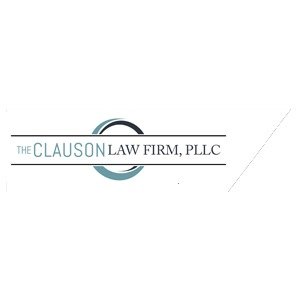Best Legal Document Lawyers in North Carolina
Share your needs with us, get contacted by law firms.
Free. Takes 2 min.
Or refine your search by selecting a city:
List of the best lawyers in North Carolina, United States
United States Legal Document Legal Questions answered by Lawyers
Browse our 2 legal questions about Legal Document in United States and read the lawyer answers, or ask your own questions for free.
- Confirming the authenticity of a divorce decree
- I'm married to a Nigerian, and I believe he provided a fake divorce decree, I need help to confirm this decree.
-
Lawyer answer by Nomos Legal Practice
Thank you and best regards, Kingsley Izimah, Esq. SK Solicitors
Read full answer - How do I legally protect my idea before selling or licensing it to a company?
- I have a makeup product idea that I want to sell or license, not the product itself. It is influenced by a product that was recently launched. Therefore, I want to sell/license to the company that launched said product. After some research, I contacted a patent attorney who explained that... Read more →
-
Lawyer answer by P.O OHIKHENA & Co
Good day,A patent will not be applicable since it's still an idea. You can go into an MOU(Memorandum of understanding) with the said company and also an NDA.You can contact me for my insight. Visit our profile and send us...
Read full answer
About Legal Document Law in North Carolina, United States
Legal documents are a fundamental aspect of daily life in North Carolina, just as they are throughout the United States. These documents range from contracts and agreements to wills, power of attorney forms, business filings, real estate documents, and court records. The state of North Carolina recognizes and regulates legal document creation, execution, and storage to ensure that citizens’ rights are protected and that transactions are valid and enforceable. Properly prepared legal documents help prevent misunderstandings, provide clarity, and can be integral during disputes or legal proceedings.
Why You May Need a Lawyer
There are many situations where the expertise of a lawyer is necessary or highly recommended when dealing with legal documents in North Carolina. Some common scenarios include:
- Drafting or reviewing contracts, such as those for employment, business, or real estate transactions.
- Setting up a business and needing articles of incorporation, operating agreements, or partnership agreements.
- Creating estate planning documents such as wills, trusts, health care directives, or powers of attorney.
- Understanding or challenging the enforceability of an agreement or a clause within a document.
- Filing motions, pleadings, or other court-related paperwork.
- Ensuring documents meet North Carolina’s notarization or witness requirements.
- Dealing with deeds or transferring property titles.
- Responding to or issuing legal notices.
- Needing guidance on the retention and destruction of important legal documents.
Local Laws Overview
North Carolina has specific laws and regulations that affect the creation, execution, and enforcement of legal documents. Some key points to consider include:
- Notarization Requirements: Many documents, such as deeds and certain affidavits, must be notarized to be valid. North Carolina has laws governing who can serve as a notary and the processes for notarization.
- Witnesses: Some documents, such as wills and health care directives, require adult witnesses who are not beneficiaries or interested parties.
- Electronic Documents: North Carolina recognizes certain electronic signatures and records under the Uniform Electronic Transactions Act, but not for all document types.
- Statute of Limitations: There are deadlines for bringing claims based on written or oral contracts and other legal documents. Missing these deadlines can bar your claim.
- Public Record Requirements: Business filings, court documents, and property records are subject to specific filing requirements and may become part of the public record.
- Requirements for Revocation or Amendment: The procedures for changing or revoking legal documents, such as wills or powers of attorney, are specifically regulated.
Frequently Asked Questions
What kinds of documents must be notarized in North Carolina?
Deeds, some power of attorney forms, affidavits, and certain other legal records generally require notarization to be recognized by North Carolina courts and public offices.
Can I use an electronic signature on legal documents in North Carolina?
Yes, North Carolina law allows electronic signatures for many documents, but not all. Exceptions include wills, codicils, and some family law documents.
Do both parties need to sign a contract for it to be valid?
Generally, yes. For a contract to be enforceable, there must be mutual assent, which is typically shown by both parties’ signatures.
How many witnesses are required for a will in North Carolina?
A valid will must be signed in the presence of at least two competent witnesses who are not beneficiaries.
How long should I keep my legal documents?
The retention period depends on the document type. Some, like property deeds, should be kept indefinitely. Others may have shorter recommended retention periods. Consult with a lawyer for guidance.
Can I draft my own legal documents?
Yes, but errors or omissions can lead to costly disputes. It is advisable to consult a lawyer, especially for important documents like wills, contracts, or business agreements.
What happens if a legal document has a mistake?
Depending on the mistake, the document may be void or voidable. Some mistakes can be corrected with an amendment or correction, but significant errors often require legal assistance.
Is a handwritten will valid in North Carolina?
North Carolina does recognize handwritten (holographic) wills under certain conditions, including being entirely in the handwriting of the testator and properly witnessed.
Who can serve as a witness on a legal document?
Witnesses must generally be adults and should not be beneficiaries or have an interest in the transaction. Specific requirements vary by document type.
How can I revoke a legal document?
Revocation procedures vary. For some documents, like wills, creating a new will that states the prior version is revoked is sufficient. For others, a written notice may be required. Always follow the requirements set by North Carolina law.
Additional Resources
For those seeking guidance or official forms related to legal documents in North Carolina, the following resources are valuable:
- North Carolina Secretary of State - for notary, business filings, and other public records matters.
- North Carolina State Bar - for locating licensed attorneys and legal guidance.
- North Carolina Administrative Office of the Courts - for court forms and filing procedures.
- Local county Register of Deeds offices - for property records and vital records.
- Legal Aid of North Carolina - providing free or low-cost legal assistance to eligible residents.
- UNC School of Government - for educational materials and resources on state law and public administration.
Next Steps
If you need legal assistance with a document in North Carolina:
- Gather all relevant information and existing documents relating to your issue.
- Identify the type of document you need to draft, review, amend, or challenge.
- Consult with a qualified North Carolina lawyer, especially if the matter involves significant rights or obligations.
- Check whether the document requires notarization or witnesses and make appropriate arrangements.
- Maintain copies of all legal documents for your records and follow any filing requirements with public offices.
- If cost is a concern, consider reaching out to local legal aid or pro bono resources for help.
Taking prompt and informed steps will ensure your legal documents are valid, enforceable, and effective in protecting your interests.
Lawzana helps you find the best lawyers and law firms in North Carolina through a curated and pre-screened list of qualified legal professionals. Our platform offers rankings and detailed profiles of attorneys and law firms, allowing you to compare based on practice areas, including Legal Document, experience, and client feedback.
Each profile includes a description of the firm's areas of practice, client reviews, team members and partners, year of establishment, spoken languages, office locations, contact information, social media presence, and any published articles or resources. Most firms on our platform speak English and are experienced in both local and international legal matters.
Get a quote from top-rated law firms in North Carolina, United States — quickly, securely, and without unnecessary hassle.
Disclaimer:
The information provided on this page is for general informational purposes only and does not constitute legal advice. While we strive to ensure the accuracy and relevance of the content, legal information may change over time, and interpretations of the law can vary. You should always consult with a qualified legal professional for advice specific to your situation.
We disclaim all liability for actions taken or not taken based on the content of this page. If you believe any information is incorrect or outdated, please contact us, and we will review and update it where appropriate.
Browse legal document law firms by city in North Carolina
Refine your search by selecting a city.













